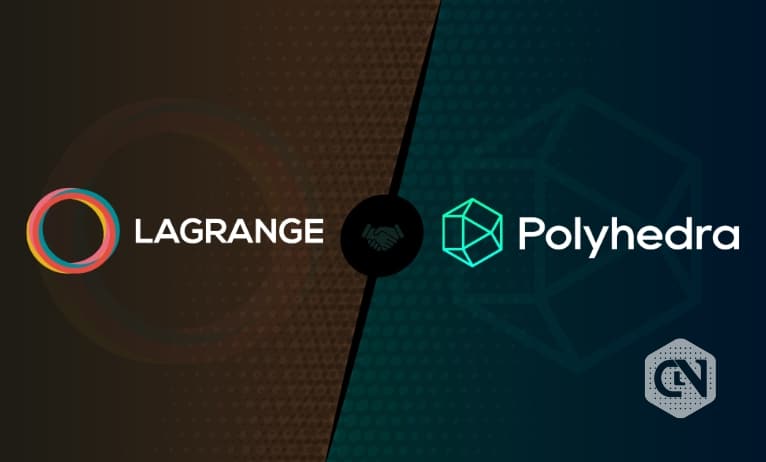Polyhedra Network has announced its partnership with Lagrange Labs. The objective of the partnership is to solve zkBridging for optimistic rollups. Interestingly, this marks the first instance of both of them coming together to enable zkBridging with the offering of instance finality of optimistic rollups.
It has been a strategic partnership by Polyhedra Network, underlining that the agenda is to push the art of how trustless interoperability can help the Web3 sphere in securing applications. What makes both of them ideal for each other is the fact that they come with an experience in cryptography research. Also, both ventures are backed by the commitment to utilizing zkProof to advance the computation of data and cross-chain infrastructure.
Lagrange Labs and Polyhedra Network are solving the zkBridging for optimistic rollups via State Commissions. They provide a mechanism for generating zkProof. Every Ethereum validator within the Committee is restaked via EigenLayer. Optimistic Rollup’s sequencer submits the state transition, which is attested to finality by every State Committee involved in the network.
The State Committee then uses its Ethereum BLS12-381 consensus key to attest the restaked validator to the block. The only condition is that the rollup block must have reached Ethereum equivalent finality, that is Arbitrum or must be safe.
Advertisement
Tuple-executing signatures have three crucial elements: block_header, current_committee, and next_committee.
While the current_committee is assigned the role of signing block b, the next_committee assumes the task of signing for block b+1, that is, the block appearing immediately after block b. The committees are defined as permissionless on-chain, depending on the nodes that have been given permission to join the State Committee.
deVirgo by Polyhedra Network is being used on top of the signatures. The purpose is to generate a zkProof with the validity of every rollup block. The proofs can be generated for any OP stack chain or for Arbitrum. These include Base, Optimism, Manta, Mantle, and Zora.
The following properties must hold true for the validity to be proved for the block b:
- A minimum of two-thirds of the n attestors sign the block header. Public keys have to be stored in the current_committee Merkle Tree.
- The current_committee and next_committee become equals in the tree of the next block, that is, b+1.
- The next block is either valid with respect to the conditions stated or is the genesis block.
Moving forward, Polyhedra Network and Lagrange Labs plan to collaborate to empower the use cases of new cross-chain applications. This will be done by leveraging their novel proof and innovative systems.
Advertisement
The development comes days after Polyhedra Network asked its community to be a part of Mystery of Pandralia. Participants can unlock Pandra NFTs to claim their rewards and loyalty points. The initial pool prize is USDT worth $100,000. Pandras can be found on the official website of zkBridge. More Pandras will become available for exploration as time passes.







